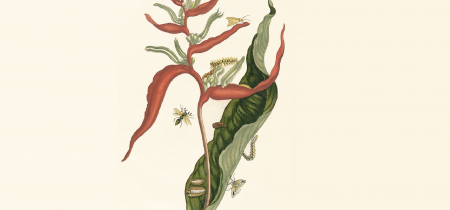Fulham Palace & seeds of sedition: talk with Akosua Paries-Osei
Tuesday 19 November • 19.00 - 20.00
Akosua Paries-Osei's talk will highlight how African women used their medicinal knowledge of botanicals from Africa and the New World during the period of transatlantic slavery to manage and control their fertility. Some of these plants such as passion flower and ginger were grown and cultivated at Fulham Palace in the late 17th century by Bishop Compton, and also within his networks in England. Enslaved women's knowledge of fertility and anti-fertility botanicals were known to colonists whose business was intimately entwined within the reproductive capabilities of enslaved women.
This talk is part of a series held at Fulham Palace for Black History Month in October 2024, where we will re-examine historical narratives and bring to the forefront the voices of those who have been marginalized.
About the speaker
Akosua is a Fulham resident and a 3rd year PhD student at Royal Hollway, University of London, undertaking a racial justice placement at the Natural History Museum (NHM). Her research at the NHM explores the medicinal use of botanicals by enslaved African women to manage and control their reproductive health. In particular, she is interested in African (and New World) botanicals that have been incorporated into the European pharmacopeia through knowledge gained from the enslaved.
Ticket options
Help support Fulham Palace
To support Fulham Palace Trust with a donation, please ensure the box is ticked. Should you wish not to donate, simply click on the green slider below.
Thank you for supporting Fulham Palace.
Tuesday 19 November • 19.00 - 20.00
Akosua Paries-Osei's talk will highlight how African women used their medicinal knowledge of botanicals from Africa and the New World during the period of transatlantic slavery to manage and control their fertility. Some of these plants such as passion flower and ginger were grown and cultivated at Fulham Palace in the late 17th century by Bishop Compton, and also within his networks in England. Enslaved women's knowledge of fertility and anti-fertility botanicals were known to colonists whose business was intimately entwined within the reproductive capabilities of enslaved women.
This talk is part of a series held at Fulham Palace for Black History Month in October 2024, where we will re-examine historical narratives and bring to the forefront the voices of those who have been marginalized.
About the speaker
Akosua is a Fulham resident and a 3rd year PhD student at Royal Hollway, University of London, undertaking a racial justice placement at the Natural History Museum (NHM). Her research at the NHM explores the medicinal use of botanicals by enslaved African women to manage and control their reproductive health. In particular, she is interested in African (and New World) botanicals that have been incorporated into the European pharmacopeia through knowledge gained from the enslaved.




